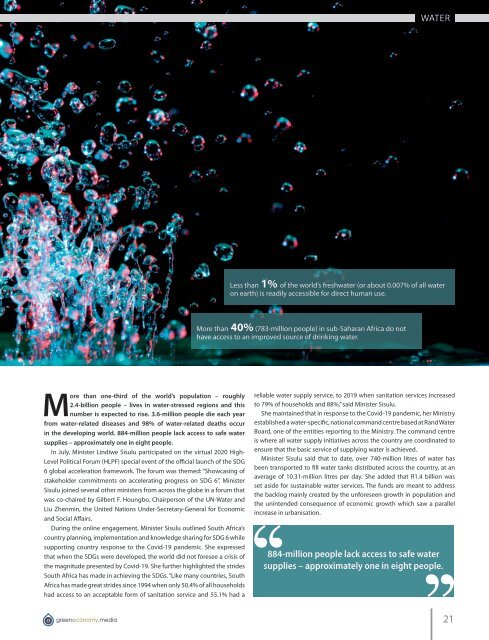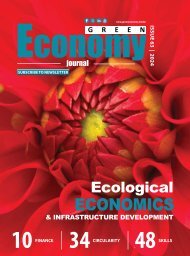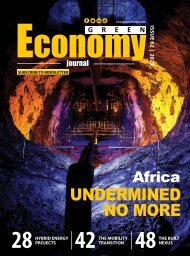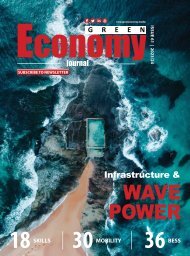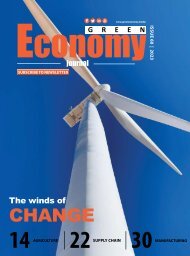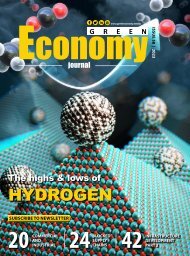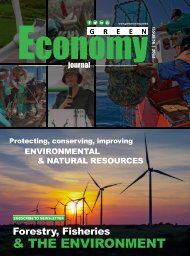Green Economy Journal Issue 41
Create successful ePaper yourself
Turn your PDF publications into a flip-book with our unique Google optimized e-Paper software.
WATER<br />
Less than 1% of the world’s freshwater (or about 0.007% of all water<br />
on earth) is readily accessible for direct human use.<br />
More than 40% (783-million people) in sub-Saharan Africa do not<br />
have access to an improved source of drinking water.<br />
More than one-third of the world’s population – roughly<br />
2.4-billion people – lives in water-stressed regions and this<br />
number is expected to rise. 3.6-million people die each year<br />
from water-related diseases and 98% of water-related deaths occur<br />
in the developing world. 884-million people lack access to safe water<br />
supplies – approximately one in eight people.<br />
In July, Minister Lindiwe Sisulu participated on the virtual 2020 High-<br />
Level Political Forum (HLPF) special event of the official launch of the SDG<br />
6 global acceleration framework. The forum was themed: “Showcasing of<br />
stakeholder commitments on accelerating progress on SDG 6”. Minister<br />
Sisulu joined several other ministers from across the globe in a forum that<br />
was co-chaired by Gilbert F. Houngbo, Chairperson of the UN-Water and<br />
Liu Zhenmin, the United Nations Under-Secretary-General for Economic<br />
and Social Affairs.<br />
During the online engagement, Minister Sisulu outlined South Africa’s<br />
country planning, implementation and knowledge sharing for SDG 6 while<br />
supporting country response to the Covid-19 pandemic. She expressed<br />
that when the SDGs were developed, the world did not foresee a crisis of<br />
the magnitude presented by Covid-19. She further highlighted the strides<br />
South Africa has made in achieving the SDGs. “Like many countries, South<br />
Africa has made great strides since 1994 when only 50.4% of all households<br />
had access to an acceptable form of sanitation service and 55.1% had a<br />
reliable water supply service, to 2019 when sanitation services increased<br />
to 79% of households and 88%,” said Minister Sisulu.<br />
She maintained that in response to the Covid-19 pandemic, her Ministry<br />
established a water-specific, national command centre based at Rand Water<br />
Board, one of the entities reporting to the Ministry. The command centre<br />
is where all water supply initiatives across the country are coordinated to<br />
ensure that the basic service of supplying water is achieved.<br />
Minister Sisulu said that to date, over 740-million litres of water has<br />
been transported to fill water tanks distributed across the country, at an<br />
average of 10.31-million litres per day. She added that R1.4 billion was<br />
set aside for sustainable water services. The funds are meant to address<br />
the backlog mainly created by the unforeseen growth in population and<br />
the unintended consequence of economic growth which saw a parallel<br />
increase in urbanisation.<br />
884-million people lack access to safe water<br />
supplies – approximately one in eight people.<br />
greeneconomy.media<br />
21


